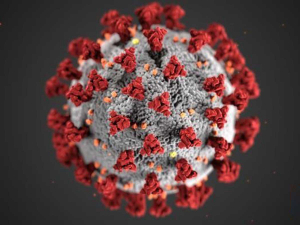DairyNZ Calls for Changes to Government’s Proposed Resource Management Act Reform
DairyNZ says the Government’s proposed Resource Management Act reform needs further work to ensure it delivers on its intent.
 Farmers and those in the agri-sector need to have good plans in place for dealing with the ever increasing likelihood of a major community outbreak of Omicron.
Farmers and those in the agri-sector need to have good plans in place for dealing with the ever increasing likelihood of a major community outbreak of Omicron.
OPINION: Benjamin Disraeli once said, "Plan for the worst and hope for the best".
While the 19th century former British Prime Minister could never have known about Covid, his words from the 1800s are as relevant today as they were back in the day.
Farmers and those in the agri-sector need to have good plans in place for dealing with the ever increasing likelihood of a major community outbreak of Omicron.
Already, a pan-primary sector group - which includes Beef+Lamb NZ (BLNZ), DairyNZ, MPI, the deer and pork industries and Federated Farmers - has been preparing advice for farmers to deal with this contingency.
All of these organisations have advice on their respective websites aimed at making it easy for those in the primary sector to plan for such an outbreak.
There are also copies of this information in vet clinics and rural supply stores.
"It's all about how to keep you and your farm safe from Covid and, if by chance, you or someone on your farm tests positive and has to go to hospital or into isolation," says BLNZ's Will Halliday.
Have a written and readily available plan in place to get through this period before something happens. It is also important that farmers have an arrangement with someone - or a number of people - who might be able to help, as well as having a check list and detailed plan of what to do on the farm to keep it running.
Meanwhile, the country's major meat processors say they are well down the road in planning how to mitigate the outbreak's impact.
The meat sector is already seriously short staffed; any outbreak of Omicron - and any resulting staff absenteeism - would have a major impact on its ability to process animals, fill all important export orders and on its revenue. The dairy processing and manufacturing industry would face similar challenges.
The meat and dairy processing sectors network of processing facilities does provide the option to move animals and milk between plants if Omicron moves around the country.
Previous Covid outbreaks and lockdowns have proven just how vital the agri-sector is to NZ's economy. Those in the sector need to take Disraeli's words to heart and - if they have not already - get planning.
OPINION: "We are back to where we were a year ago," according to a leading banking analyst in the UK, referring to US president Donald Trump's latest imposition of a global 10% tariff on all exports into the US.
DairyNZ says the Government’s proposed Resource Management Act reform needs further work to ensure it delivers on its intent.
Overseas Trade Minister Todd McClay says he's working constructively with the Labour Party in the hope they will endorse the free trade agreement (FTA) with India when the agreement comes before Parliament for ratification.
Donald Trump's latest tariff tantrum has again thrown the world of trade into a new round of turmoil and uncertainty, and NZ is caught up in it.
The third edition of the NZ Dairy Expo, held in mid-February in Matamata, has shown that the KISS principle (keep it simple stupid) was getting a positive response from exhibitors and visitors alike.
Twenty years ago, South African dairy farm manager Louis Vandenberg was sent to a farm in Waikato to provide training on Afimilk technology.

OPINION: A mate of yours truly reckons rural Manawatu families are the latest to suffer under what he calls the…
OPINION: If old Winston Peters thinks building trade relations with new nations, such as India, isn't a necessary investment in…